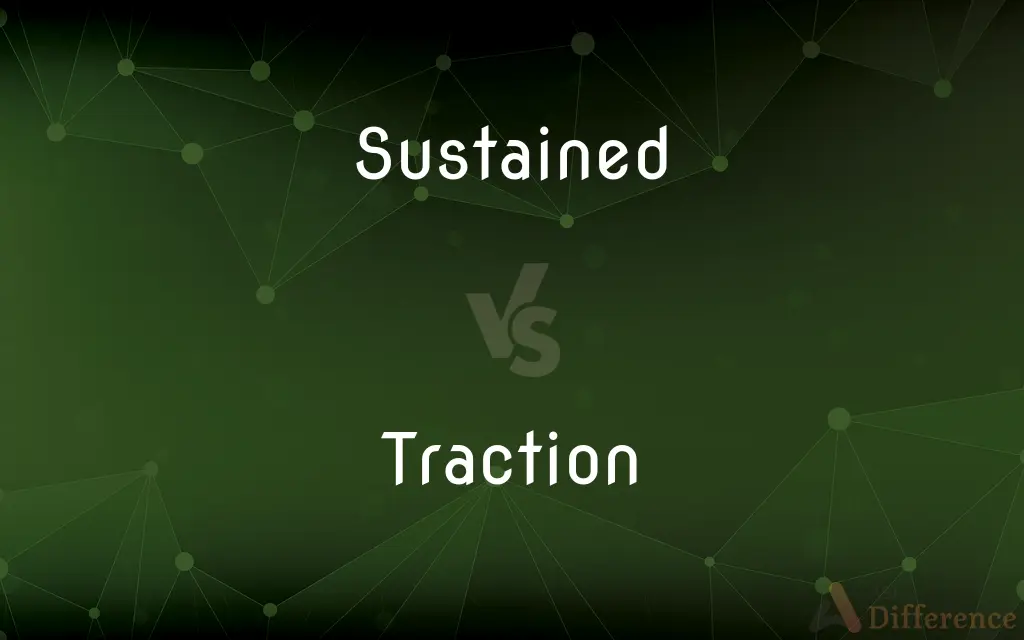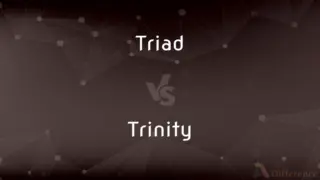Sustained vs. Traction — What's the Difference?

Difference Between Sustained and Traction
ADVERTISEMENT
Compare with Definitions
Sustained
Simple past tense and past participle of sustain
Traction
The act of drawing or pulling, especially the drawing of a vehicle or load over a surface by motor power.
Sustained
Held continuously at a certain level.
Traction
The condition of being drawn or pulled.
Sustained
(music) Held at a certain pitch.
ADVERTISEMENT
Traction
Pulling power, as of a draft animal or engine.
Sustained
Held up to a certain pitch, degree, or level; uniform; as, sustained pasion; a sustained style of writing; a sustained note in music.
Traction
Adhesive friction, as of a wheel on a track or a tire on a road.
Sustained
Maintained at length without interruption or weakening;
Sustained flight
Traction
(Medicine) A sustained pull applied mechanically especially to the arm, leg, or neck so as to correct fractured or dislocated bones, overcome muscle spasms, or relieve pressure.
Sustained
(of an electric arc) continuous;
Heat transfer to the anode in free burning arcs
Traction
(Informal) Impetus or advancement, as toward a desired result
The bill gained traction in the Senate and was passed by a large majority.
Traction
The act of pulling something along a surface using motive power.
Traction
The condition of being so pulled.
Traction
Grip.
Traction
The pulling power of an engine or animal.
Traction
The adhesive friction of a wheel etc on a surface.
Traction
Progress in or momentum toward achieving a goal, especially in gaining support, recognition, or popularity.
Traction
(business) The extent of adoption of a new product or service, typically measured in number of customers or level of revenue achieved.
Traction
(politics) Popular support.
Traction
(academia) Scholarly interest and research.
Traction
(medicine) A mechanically applied sustained pull, especially to a limb.
Traction
(transport) Collectively, the locomotives of a railroad, especially electric locomotives.
Traction
To apply a sustained pull to (a limb, etc.).
Traction
The act of drawing, or the state of being drawn; as, the traction of a muscle.
Traction
Specifically, the act of drawing a body along a plane by motive power, as the drawing of a carriage by men or horses, the towing of a boat by a tug.
Traction
Attraction; a drawing toward.
Traction
The adhesive friction of a wheel on a rail, a rope on a pulley, or the like; as, the car is stuck in the snow because it can;t get any traction.
Traction
The friction between a body and the surface on which it moves (as between an automobile tire and the road)
Traction
(orthopedics) the act of pulling on a bone or limb (as in a fracture) to relieve pressure or align parts in a special way during healing;
His leg was in traction for several days
Share Your Discovery

Previous Comparison
Triad vs. Trinity
Next Comparison
Duo vs. Dur














































